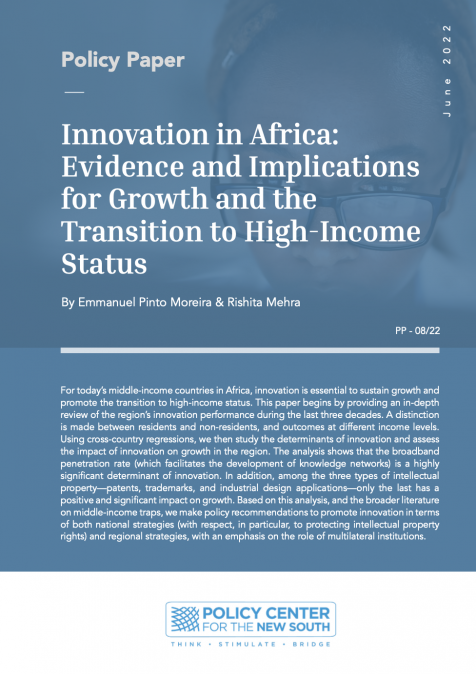Publications /
Policy Paper
For today’s middle-income countries in Africa, innovation is essential to sustain growth and promote the transition to high-income status. This paper begins by providing an in-depth review of the region’s innovation performance during the last three decades. A distinction is made between residents and non-residents, and outcomes at different income levels. Using cross-country regressions, we then study the determinants of innovation and assess the impact of innovation on growth in the region. The analysis shows that the broadband penetration rate (which facilitates the development of knowledge networks) is a highly significant determinant of innovation. In addition, among the three types of intellectual property—patents, trademarks, and industrial design applications—only the last has a positive and significant impact on growth. Based on this analysis, and the broader literature on middle-income traps, we make policy recommendations to promote innovation in terms of both national strategies (with respect, in particular, to protecting intellectual property rights) and regional strategies, with an emphasis on the role of multilateral institutions.










